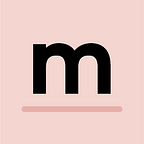Different Destinations: A Design Challenge
I’m sitting on a bus on an unusually hot December day in Amman. It’s traveling from the Jesuit Refugee Service Centre in Jabal Hussein (the west of the city), via downtown Amman to Hashem AlShemali, depositing students amongst the city’s seven hills as it goes.
Fadi and Isaac, two iraqi refugee students in Amman, arrived from Mosul two years ago. Speaking to them it’s clear that the English course that has just finished is only a stepping stone to a future outside of Jordan. They see their life elsewhere: Canada, the UK or Australia perhaps. The course is a means to gather skills that can be relied upon in a somewhat uncertain future. Fadi, who lives with his wife and daughter in Amman, expects to be joining his sister and brother in-law in Sydney in only a few weeks, wants to find any job using his English skills wants he gets there. Isaac wants to become a sports coach. He doesn’t yet have a resettlement destination, but is sure that he’ll need English — the UK and Australia are top of his list.
Uncertainty is one of the common challenges faced by others on the bus. Sitting alongside us are are more Iraqis (each with their own specific Iraqi identity), Syrians, Sudanese and Somalis. Yet each group can expect a different destination. Iraqis are being resettled quickest to different Western countries. Syrians can also expect this, albeit more slowly. For very few, returning to Syria is also becoming a faint possibility. The Sudanese and Somalis face a longer wait, with little prospect of returning to homes destroyed by perpetual civil conflict and few resettlement places.
These different destinations raises an interesting design challenge: if we’re trying to support them accessing higher education, which systems, skill sets and qualifications are relevant to them? Some education options are common to all destinations: English and computer literacy being two of the most popular. But an Iraqi wanting a qualification valid in the US may be reluctant to spend time and money on a certificate more familiar across the MENA region. Furthermore, each higher education system will have different requisite skill sets.
Some initial thoughts on overcoming this challenge:
Focus on core skills such as english and foundational levels.
Any accreditation (and certificate) allows students to provide evidence of their skills elsewhere. Even better: work with frameworks that have precedent for international transferability. Projects like the Article 26 backpack are making progress in this area.
Could a network of “refugees welcome” education institutions in major resettlement countries provide pathways to adapt and contextualise skills and knowledge learnt elsewhere?
Regardless of the different destinations, understanding refugee communities’ ambitions and mapping out their respective paths is essential to providing relevant education services.
Foundation: A Bridge to University ← PREVIOUS
Sign-up for our newsletter for the Top 5 Things to Know about Jamiya each month
